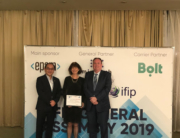Paper submissions are being sought for the 16th Human Choices and Computers Conference, to be held in Phuket, Thailand from 8-10 September 2024.
Focused on the theme of “Humans, Technological Innovations and Artificial Intelligence: Opportunities and Consequences”, HCC16 harks back to the original theme of the first HCC conference 50 years ago.
Back then, participants were concerned about how people were being forced to use computers in dehumanising ways. They argued that sociotechnical problems must be solved in ways that foreground the interests of workers and communities and that, ultimately, human needs must take precedence over technological and economic considerations. Those concerns have never really left us and indeed are close to the theme of the 16th HCC.
In recent months, we have seen the meteoric rise of Generative AI tools like ChatGPT, ChatSonic, LaMDA, Neeva AI, DragonFly, etc. As we claim to move towards a more human-centric Industry 5.0, these, and other, technological innovations are challenging many of the existing relationships and choices that exist between humans and computers. The challenges have been documented extensively in the popular press, but also in academia. The challenges exist at the juncture of human needs on the one hand, and technological and economic considerations on the other. While the technology may have changed, the events of 50 years ago still seem very fresh.
Some scholars and pundits are profoundly negative in their evaluations of AI technologies, suggesting that these tools will upend many aspects of the status quo in any domain where human creativity dominates, notably education, journalism, research, governance, and of course crime. Others, perhaps those with a Machiavellian inclination, are quick to see the advantages associated with the new technology and argue that developments and innovations of this kind cannot simply be stopped by fiat. Indeed, although they may have the potential to eliminate creative work, they are themselves the products of creative and fertile imaginations. Unsurprisingly, new tools (themselves premised on AI) that are claimed to detect AI-created materials have also emerged, perhaps initiating a ‘war’ between the two sides.
What we can expect is that just as the new technology may solve some problems, it may exacerbate others. For instance, as we noted in the call for papers for the previous HCC15 conference, the encroaching influence of machine learning-based systems that can embed the biases inherent in the data they have learned from threatens to entrench the societal problems of the past, rather than redress them. A wide range of ethical issues are certainly associated with the new technology, which we suggest will prove to offer a cornucopia of new research opportunities.
Since 1974, the Human Choice and Computers (HCC) conference series has consistently fostered innovative thinking about the interfaces between society and technology. At this time, HCC16 in 2024 focuses on “Humans, Technological Innovations and Artificial Intelligence: Opportunities and Consequences” and welcomes inputs from members of academia and research, civic society, computing associations, industry, and the IT professions on the following (and related) themes:
- Ethical and legal issues for generative AI technologies
- Social accountability and responsibility for computing and data utilization
- The daily life applications of new intelligent technologies
- How did we get here? Precedents, and lessons from the past
- Personal autonomy in information systems: where is the human in our models?
- Culture and technology: Can we shape a more human-centric computing environment?
- Personal freedom and in the real world and the metaverse
- How can new technological innovations spur genuine environmental impact?
- AI for Development: What are the potential application areas?
- How will AI and innovative technologies take or change our jobs?
- What is the future of business organizations in an AI-powered environment?
- Global or local? How are the lived experiences of the marginalized and dispossessed citizens of developing countries affected by new technological innovations?
- New technology, generative AI and fun! Working, playing, entertaining and relaxing in our working and private digital lives
Paper Submissions
The conference is open to attendees at all stages of career and education, whether you are at the start, middle or peak of your career, either as academics or practitioners. Submitted papers should be approximately 3,000-5,000 words in length. Please return your paper, using the appropriate format, through http://www.hcc16.org
There are no video conferencing facilities at the venue. Remote presentation via Zoom will be considered on a case-by-case basis. Please indicate whether you are submitting to the conference general theme, or to one of the specific WG workshops. Papers must be anonymised for blind peer review.
Important Dates
January 31, 2024 – Submissions due
March 31, 2024 – Notification of acceptance/rejection
April 30, 2024 – Submission of camera-ready papers
July 31, 2024 – Deadline for early bird registration
September 8 – 10, 2022 – Conference dates
Chairs:
Conference Chairs: David Kreps, Robert Davison
Program Committee Chair: Endrit Kromidha
Organising Committee Chair: Siripan Deesilatham
Proceedings Editor: Robert Davison
Proceedings Co-Editors: Endrit Kromidha, Siripan Deesilatham, David Kreps
Co-Located Workshops
HCC16 will also include various co-located TC9 Working Group workshops, including: WG9.5 Our Digital Lives – “New forms of connectivity through digital innovation”.
Technological innovations and, more recently, AI have enabled new forms of connectivity in our work and private lives. We are interested in studies (including work-in-progress) exploring any aspect of ‘Our Digital Lives’ following our Working Group’s general theme. Example topics include (but are not limited to):
- Digital work in its social context
- Digital health
- Digital education
- Digital labour
- Digital games
- Digital visitor economies (e.g., tourism, hospitality, events)
- Digital social movements and online communities
- New forms of social media
- New forms of digital reality such as augmented reality, virtual reality, mixed reality, extended reality
- New digital technologies such as Generative AI, Metaverse, and Blockchain
- New technologies for human enhancement
Submissions are welcomed that offer fresh theoretical or empirical insights into how digital innovations have transformed the way we work, communicate, and play together.





